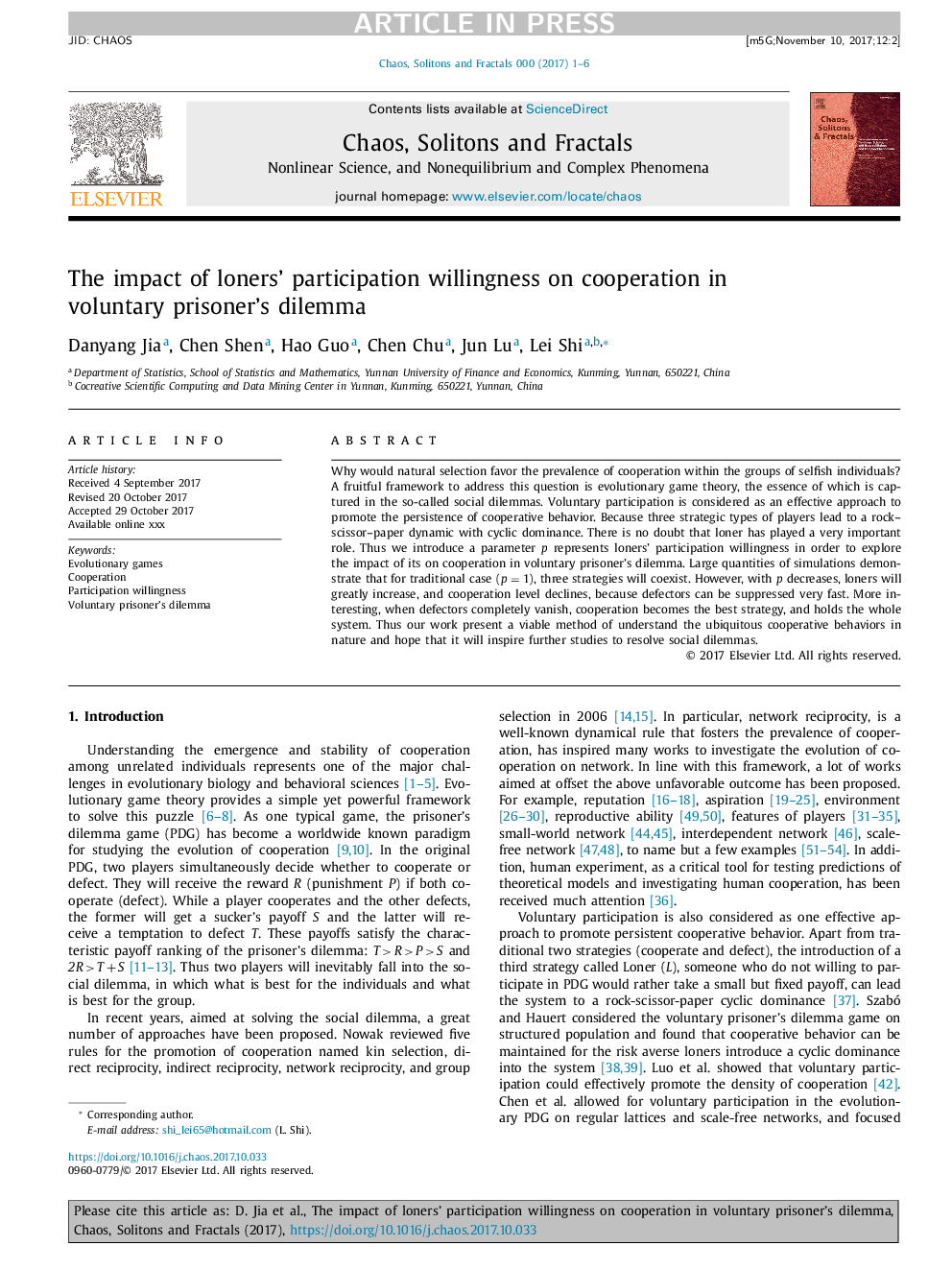| Article ID | Journal | Published Year | Pages | File Type |
|---|---|---|---|---|
| 8254045 | Chaos, Solitons & Fractals | 2018 | 6 Pages |
Abstract
Why would natural selection favor the prevalence of cooperation within the groups of selfish individuals? A fruitful framework to address this question is evolutionary game theory, the essence of which is captured in the so-called social dilemmas. Voluntary participation is considered as an effective approach to promote the persistence of cooperative behavior. Because three strategic types of players lead to a rock-scissor-paper dynamic with cyclic dominance. There is no doubt that loner has played a very important role. Thus we introduce a parameter p represents loners' participation willingness in order to explore the impact of its on cooperation in voluntary prisoner's dilemma. Large quantities of simulations demonstrate that for traditional case (p=1), three strategies will coexist. However, with p decreases, loners will greatly increase, and cooperation level declines, because defectors can be suppressed very fast. More interesting, when defectors completely vanish, cooperation becomes the best strategy, and holds the whole system. Thus our work present a viable method of understand the ubiquitous cooperative behaviors in nature and hope that it will inspire further studies to resolve social dilemmas.
Keywords
Related Topics
Physical Sciences and Engineering
Physics and Astronomy
Statistical and Nonlinear Physics
Authors
Danyang Jia, Chen Shen, Hao Guo, Chen Chu, Jun Lu, Lei Shi,
